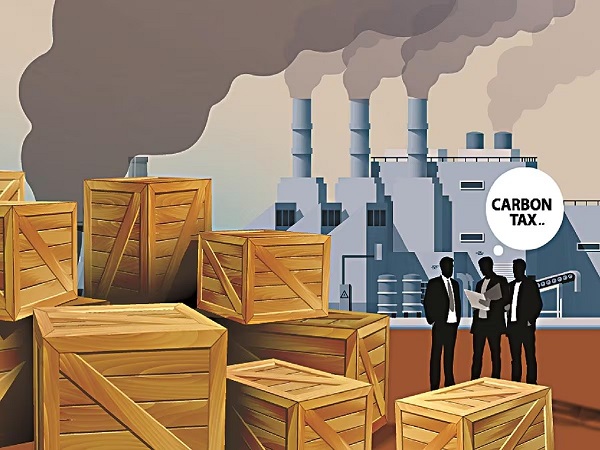The Rise of Voluntary Carbon Markets What CPAs Should Know Now
The Rise of Voluntary Carbon Markets What CPAs Should Know Now
As climate change continues to dominate global discussions, businesses are increasingly looking for ways to reduce their carbon footprints. One of the most significant developments in this area is the rise of voluntary carbon markets. For
CPAs in Brampton, Ontario, understanding these markets is essential for advising clients on sustainable practices and compliance. At Fintax Solution, we aim to equip you with the knowledge needed to navigate this evolving landscape.
What Are Voluntary Carbon Markets?
Voluntary carbon markets allow companies and individuals to buy and sell carbon credits voluntarily, rather than to comply with regulatory requirements. These markets are designed to encourage and enable businesses to offset their carbon emissions by investing in projects that reduce or remove greenhouse gases from the atmosphere. Projects often include reforestation, renewable energy installations, and improved agricultural practices.

The Growth of Voluntary Carbon Markets
The voluntary carbon market has seen exponential growth in recent years. Several factors contribute to this rise:
- Corporate Social Responsibility (CSR): More companies are prioritizing CSR and environmental sustainability, aiming to meet the expectations of environmentally conscious consumers and investors.
- Investor Pressure: Investors are increasingly looking for sustainable and responsible investment opportunities. Companies that demonstrate a commitment to reducing their carbon footprint can attract more investment.
- Climate Commitments: With global climate agreements and national targets becoming more ambitious, voluntary carbon markets offer a way for businesses to align with these goals.
- Public Awareness: The general public is becoming more aware of climate issues, driving demand for businesses to act responsibly.
How Do Voluntary Carbon Markets Work?
In voluntary carbon markets, companies purchase carbon credits to offset their emissions. One carbon credit typically represents the reduction or removal of one metric tonne of CO2 or its equivalent. Here’s a basic outline of the process:
- Emission Measurement: Businesses measure their total greenhouse gas emissions.
- Reduction Strategy: They implement internal strategies to reduce their emissions as much as possible.
- Offset Purchase: For emissions that cannot be eliminated, they purchase carbon credits from certified projects.
- Verification: Independent bodies verify that the purchased credits correspond to real and quantifiable emission reductions.
What CPAs in Brampton Need to Know
1. Compliance and Regulation:
While voluntary carbon markets are not currently regulated by mandatory schemes, it's important to stay informed about potential future regulations. CPAs should be aware of the frameworks and guidelines that might impact carbon accounting and reporting.
2. Financial Reporting:
Understanding how to account for carbon credits in financial statements is crucial. This includes recognizing the purchase of credits as an expense and ensuring accurate valuation and disclosure.
3. Tax Implications:
CPAs must stay updated on the tax treatment of carbon credits. While Canada currently has no specific tax rules for voluntary carbon credits, it's essential to monitor any changes in tax legislation that could affect clients.
4. Sustainability Reporting:
Many businesses now include sustainability reports alongside their financial reports. CPAs should be proficient in the standards and frameworks for sustainability reporting, such as the Global Reporting Initiative (GRI) and the Task Force on Climate-related Financial Disclosures (TCFD).
5. Advising Clients:
CPAs can play a critical role in advising clients on the strategic purchase and use of carbon credits. This includes evaluating the credibility of carbon offset projects, understanding market trends, and helping clients integrate carbon offsetting into their broader sustainability strategy.
6. Ethical Considerations:
It’s vital for CPAs to ensure that the carbon credits their clients purchase come from reputable and verified projects. This not only protects the client’s investment but also supports genuine environmental benefits.
Benefits of Participating in Voluntary Carbon Markets
For businesses, engaging in voluntary carbon markets offers several advantages:
- Enhanced Reputation: Demonstrating a commitment to sustainability can improve a company’s public image and strengthen its brand.
- Investor Attraction: Companies with strong environmental credentials are often more attractive to investors.
- Competitive Advantage: Businesses that proactively manage their carbon footprints can differentiate themselves from competitors.
- Risk Management: By participating in carbon markets, companies can stay ahead of potential regulatory changes and avoid future liabilities.
Navigating Voluntary Carbon Markets for CPAs in Brampton
As the importance of environmental sustainability continues to grow, voluntary carbon markets offer a valuable tool for businesses looking to reduce their carbon footprints. For CPAs in
Brampton, Ontario, staying informed about these markets is crucial for providing clients with the best possible advice and ensuring compliance with emerging standards. At Fintax Solution, we are committed to helping you navigate this complex landscape, enabling you to support your clients in their journey towards sustainability.
If you have any questions or need further assistance with voluntary carbon markets, feel free to contact us at Fintax Solution. Together, we can build a more sustainable future for our businesses and our community.




